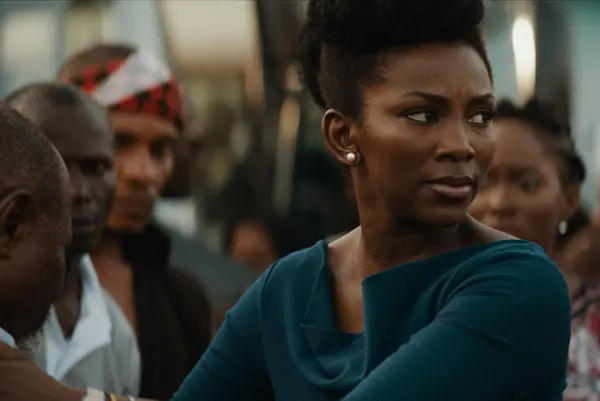Nigeria vs South Africa: Who is the GOAT of African film production?

Nigeria vs South Africa: Who truly holds the crown of African cinema?
By Chioma Ogbu
It’s a debate that never seems to end—when it comes to African cinema, who wears the crown: South Africa or Nigeria?
Nigerian reality star Pere Egbi recently stirred the pot with his take. In a post on X, he boldly declared that South Africa’s film industry is far ahead of Nollywood and called for more collaboration between the two giants. As expected, the comment section exploded, with some rallying behind South Africa while others passionately defended Nollywood.
So, let’s weigh the evidence and see which industry truly deserves the title of G.O.A.T.
South Africa has had a long history of film production, from The Gods Must Be Crazy in 1980 to District 9 in 2009. In addition to this, from 2009 there was an increased use of South African locations and talent by international film studios.
For instance, productions like Avengers: Age of Ultron (2015), The Dark Tower (2017), Escape Room (2019), and Bloodshot (2020), amongst others, show a tendency of large international houses to use Cape Town, Johannesburg, and other South African locations for their film productions.
No offense to my Nollywood colleagues but you see South Africa, they are ahead of us o when it comes to film production, story telling, film making, work ethics, name it. They are ahead. We need to collaborate!
— Pere Egbi ✊🏾 (@PereEgbi) August 18, 2025
The Nigerian movie industry also has a rich history. In fact, one might even say it has a more outstanding history than its South African counterpart, given that in the mid-2000s it became the second-largest film industry in the world in terms of the number of annual film productions.
But away from the past, let’s focus on what these two cinematic giants have to offer in these modern times.
Round One: Thematic Richness
While Nigerian movies explore a limited number of themes, diverse S.A seems to have a broader pool of themes to draw ideas from. Take, for instance, Love in Every Word and compare it to a movie like Devil is a Liar or even A Tribe Called Judah. The themes of love and family keep reoccurring, leading to limited exploration of other genres such as horror.
But South African movies, on the other hand, explore diverse themes. From the theme of love in Seriously Single to horror in Good Madam, S.A has their fingers in all the thematic pies. In this round, it appears that South Africa takes the win.
Round Two: Production Quality
This is a tough round for Nigeria, especially when you consider the fact that S.A seems to have an edge when it comes to general technological advancement. It makes sense then that they are better equipped to carry out movie production, making their movies have higher production quality as opposed to Nigeria.
For this round, I think I’ll pitch my tent in Johannesburg—Lagos for the loss.
Round Three: Acting Performance
After all, what is the essence of a movie industry if not the talent of its actors? In this round, when it comes to character presentation and general acting prowess, Nollywood takes the lead.
Take Patience Ozokwor, for instance. Back in her prime, she was known to act as the wicked mother-in-law or other similar ill-meaning characters. “Mama G,” as she was fondly called, played these roles so well that she has become the Nigerian symbol for wicked mothers-in-law.
Another example is Kanayo O. Kanayo. He has been playing the role of a ritual money expert so well and for so long that he too has become the Nigerian symbol of ill-gotten wealth.
South Africa, on the other hand, seems to have only a handful of actors who can compete with Nollywood. One very good veteran actor who could compete with Nollywood’s veterans is Jamie Uys. But we have to admit Nollywood wins this round.
Round Four: Cultural Representation
Finally, when it comes to cultural representation, South Africa seems to be taking the lead. With the use of their native language and constant referral to cultural practices in their movies, they are ahead of Nollywood, which mostly prefers to use culturally neutral settings.
This might be because Nigeria is a very multicultural country, and so cultural representation would be difficult. Admittedly, Nollywood has films done in native languages.
But if we were to list Nigerian blockbuster movies that could teach foreigners about Nigerian culture, the list would be quite short.
My point wasn’t to downplay Nollywood. Truth is, we’re giants in numbers, talent, and global influence. But South Africa has built structures & discipline we can learn from. Nigerians are protective of Nollywood because it’s one of the largest film industries in the world by…
— Pere Egbi ✊🏾 (@PereEgbi) August 19, 2025
All things considered, both the Nigerian and the South African movie industries have their strong points. They also have their weak points as well, which is why we need to collaborate well, as Pere rightly pointed out. Through collaboration, perhaps we would be able to get the best of both worlds.

